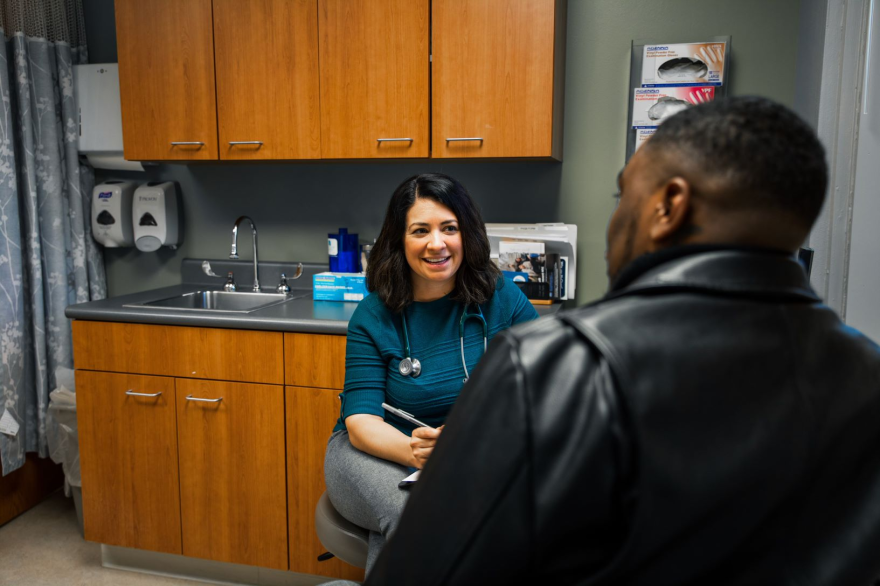America’s healthcare system is by no means perfect — there are issues with access, quality and cost. Despite being one of the leading countries in the world in healthcare spending, our health outcomes don’t reflect that. And that’s especially true for those living with HIV.
To address the unique healthcare needs of people living with HIV, Vivent Health, formerly known as the AIDS Resource Center of Wisconsin, has developed the HIV Medical Home care model. It encompasses medical, dental, mental healthcare, and even legal aid and rent assistance — all in one place.

Mike Gifford is the president and CEO of Vivent Health. He explains the importance of integrating social wellness and health services.
"Our healthcare systems are letting down people with HIV. They’re not supporting people with HIV because they’re not recognizing all of those social determinants of health that go into helping people with HIV live that long and healthy life," says Gifford.
Gifford says African Americans and members of the Hispanic Latino community make up as much as 65% of HIV infections across Wisconsin, even though they make up only 12% of the population. There's no doubt that issues of racial equity, lack of access to healthcare, and social barriers all fuel the HIV epidemic. Overall, Gifford says we've made little progress in stigma surrounding the disease.
"The sad reality is [that] 40 years after HIV was first discovered ... one in four Americans still think they can get HIV by sharing a cup from somebody who was HIV positive. That just tells me that we've got this core of stigma that we still have to address in this country."
Gifford says the most important outcome and goal of the organization is getting patients with HIV to be able to live like any other healthy person. "This is a model of care that has been designed and redesigned each and every year to meet the needs of HIV patients. So, it's great outcomes at 96% undetectable viral load."
Vivent Health is the only HIV Medical Home recognized in the country. The HIV Medical Home care model integrates health and social services. At Vivent Health, patients can receive medical care, dental care, mental health therapy, drug treatment, and pharmacy services. But what really separates the care at Vivent Health is how they address the social determinants of health like access to food, housing services, and legal services.
Now, organizations from 30 states are looking at Vivent Health to learn about their model and care. Many of them, Gifford says, are inviting Vivent Health to expand into their communities.
Gifford says that social media platforms and partnerships with Aurora and the Medical College of Wisconsin help identify people who are living with HIV. From there, individuals can get diagnosed and get the care that they need.
"We work to educate people certainly on a one-on-one basis. We have a team of community health workers that go throughout the city of Milwaukee in Southeastern Wisconsin, reaching people with that information, educating them about risk behaviors, providing counseling and testing," Gifford says.
Vivent Health has also created equity scholarships with the University of Wisconsin-Milwaukee and historical Black colleges around the country.
"We all need to move very actively into this space of addressing the social injustice and trying to create greater equity in our communities. I think private health is doing a good job. Certainly there's more for us to do, and we look forward to that in the years ahead," Gifford says.










